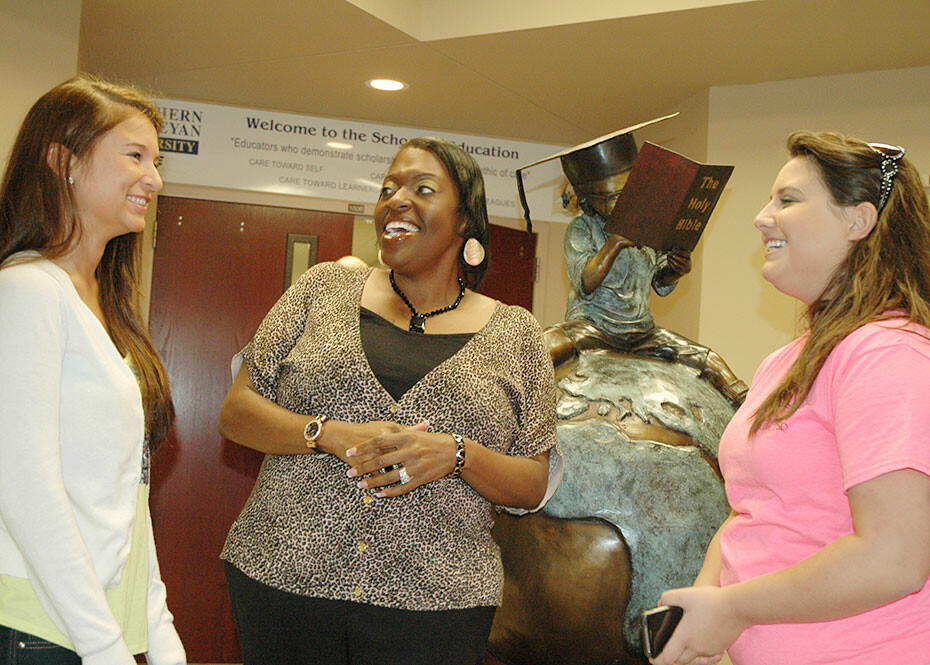Teaching reading in a digital age

Mar 26, 2013 | by Ed Welch | Academics | Faculty | Education
Lavinia Anderson, center, talks over class assignments with Chelsea Trout of Simpsonville, left, and Elizabeth Maness of Anderson. Both are Early Childhood/Elementary Education majors at Southern Wesleyan University in Central.
Developments in how the printed word is distributed and read signal a revolution unlike anything experienced since Gutenberg’s invention of the printing press more than 500 years ago.
How do such unprecedented changes affect the teaching of reading? Lavinia Anderson, assistant professor of education in the School of Education at Southern Wesleyan University, says there’s a place for both old and new technologies in classrooms filled with students who are more comfortable with tablets and smartphones than traditional books.
“I have a nine-year-old who can get on that iPad and show me how to do stuff,” Anderson said. “How does he know this? He says, ‘I just know it, Mommy.’ They are so advanced.”
According to Anderson, new teachers will enter classrooms full of tablet computers and laptops, with more material being served up on e-books. Education majors at Southern Wesleyan have to become familiar with the digital tools that are a reality in the classroom. In all education classes, they use e-portfolios and download onto their iPads education related apps to help students in different content areas. They must also use the Promethean board, a digital fixture in most schools, for presentations. They also bring their laptops and iPads to class.
The topic of technology has fueled a heated debate among scholars whom Anderson describes as being passionate about literacy. She recently served alongside literacy professors from across the state on a literacy panel at the South Carolina International Reading Association’s 38th annual Literacy Conference last month in Myrtle Beach. They discussed common core standards, teacher evaluation and the use of technology in the classroom.
“I think there could be a balance. The students enjoy working on the iPad and they enjoy the e-books,” Anderson said. “At the same time, they need to know how to pick up a book, find the call number and look for that information and actually pick up a book.”
Although most Americans enjoy 24/7 access to the Internet, sometimes access gets interrupted. Looking up information in an encyclopedia or a dictionary is a skill that Anderson hopes won’t be lost on future generations of students.
Anderson has been on Southern Wesleyan’s faculty for four years, coming after several years of experience as an educator at Anderson School District 5, where she taught in fourth, fifth and seventh-grades, and also served as an academic coach.